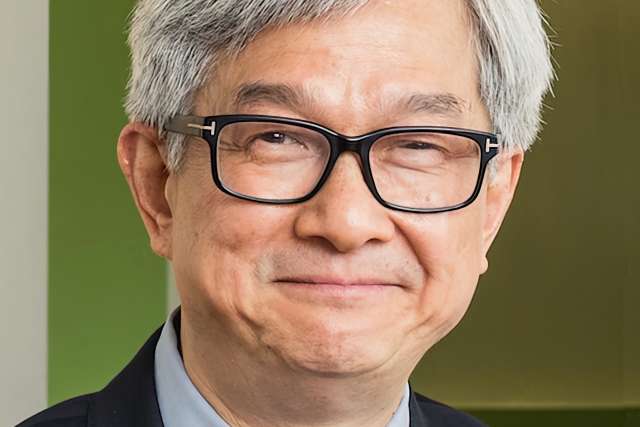In an effort to move the needle forward to improve cancer detection techniques, the National Cancer Institute awarded $2.5 million over a period of five years to principal investigator, Dr. David Wong, a professor of oral biology and associate dean for research at the UCLA School of Dentistry. The grant will support a clinical trial to validate the research team’s liquid biopsy test, a rapidly emerging technology, with the goal to have it become a certified service at UCLA and beyond.
For this project, the dental school is partnering with the UCLA Department of Pathology and Lab Medicine, led by Dr. Scott Binder, senior vice chair of pathology and laboratory medicine and director of pathology clinical services at UCLA Health.
Current clinical practice for diagnosing lung cancer involves an invasive bronchoscopy, followed by genotyping of the captured cells for key indicators and mutations of lung cancer. Genotyping is the process of determining the genetic make-up of an organism. However, this process comes with challenges. Tumor biopsies aren’t entirely accurate and could have sampling errors, or may not be feasible, depending on the health and age of the patient.
Liquid biopsy testing is a more effective, minimally invasive way to detect for key indicators in lung cancer. Current clinical liquid biopsy testing of blood and urine include utilizing digital droplet PCR or next generation sequencing, both of which provide roughly 80 percent concordance with tissue biopsy genotyping.
“To our knowledge, this is the first grant of its kind from the National Cancer Institute that funds a liquid biopsy study for the detection of cancer mutations,” said Wong. “If our trial is successful, UCLA will be the only location in the country to offer this type of certified diagnostic testing of a patient’s blood or saliva.”
The trial will utilize the novel technology that Dr. Wong and his team developed two years ago. The test, called the electric field-induced release and measurement liquid biopsy, detects actionable mutations in lung cancer patients’ saliva for epidermal growth factor receptor gene mutations, a sign of lung cancer, which can be treated by medication such as thymidine kinase inhibitors. Up until now, this method of testing has remained in the research lab and isn't available at hospitals and diagnostics labs.
“This grant allows UCLA Health to partner with the UCLA School of Dentistry to introduce an exciting new technology into the clinical setting,” said Binder. “Liquid biopsy testing will not only save lives, but also make it much more convenient for patients to get very accurate monitoring of their cancer disease state.”
By the end of the trial, the goal is to have the test advance to a laboratory certified to develop the test and eventually become one of the diagnostic services offered at UCLA Health locations and UCLA dental clinics.




